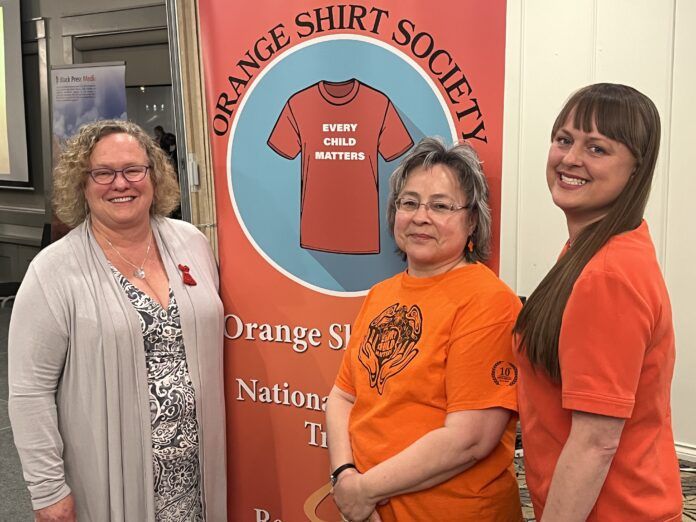Saturday marks the third National Truth and Reconciliation Day dedicated to honoring the children and families affected in Canadian residential school system.
The residential school system is one of the darkest chapters in Canadian history. Since 2020, on Sept. 30 Canadians commemorate the painful history of residential schools and reaffirm their commitment to healing and understanding.
The process for truth and reconciliation is a long one, says Nelson-Creston MLA Brittny Anderson, who adds it’s important for the community to use the federally recognized day as an opportunity to reflect as an individual on your role in truth and reconciliation.
“Truth and reconciliation is fundamentally important. It’s a core part of everything that we need to be doing in government, the community and within ourselves. The removal of children from their families is actually considered genocide globally.”
She emphasized the importance of understanding the truth and taking action to reconcile.
“It’s our jobs as community members to understand the truth about what actually happened, and then take action for reconciliation in everything we do.”
The province has continued to make strides towards reconciliation, according to Anderson, who noted that her government passed the Declaration on the Rights of Indigenous Peoples Act in 2019, which she says was a huge step forward in the process of reconciliation.
“That legislation underpins all the work we do as a government. We are also consulting with the rights and title holders on land and waterway decisions, but it also extends into other systems like education and health care.”
Removing systemic racism in the public service sector has been a priority in the province over the last year.
In July the province rolled out its BC demographic survey which was created in partnership with Indigenous groups to identify barriers in public services where systemic racism against indigenous and other marginalized groups exists.
Anderson stressed the need to address systemic racism against indigenous groups in the medical system, which she says the survey will help with.
“We know that there has been racism and discrimination against Indigenous people within our medical system and that is work that our government must lead to ensure that changes,” she said
“When someone shows up for a medical appointment or is in distress, they need to be treated with the same dignity and respect as everyone else.”
In honor of National Truth and Reconciliation Day, Anderson invites the community to join her at the Civic Theatre Saturday at 3:30 p.m. for a screening of Bones of Crows, a film by an indigenous filmmaker about a residential school survivor.







